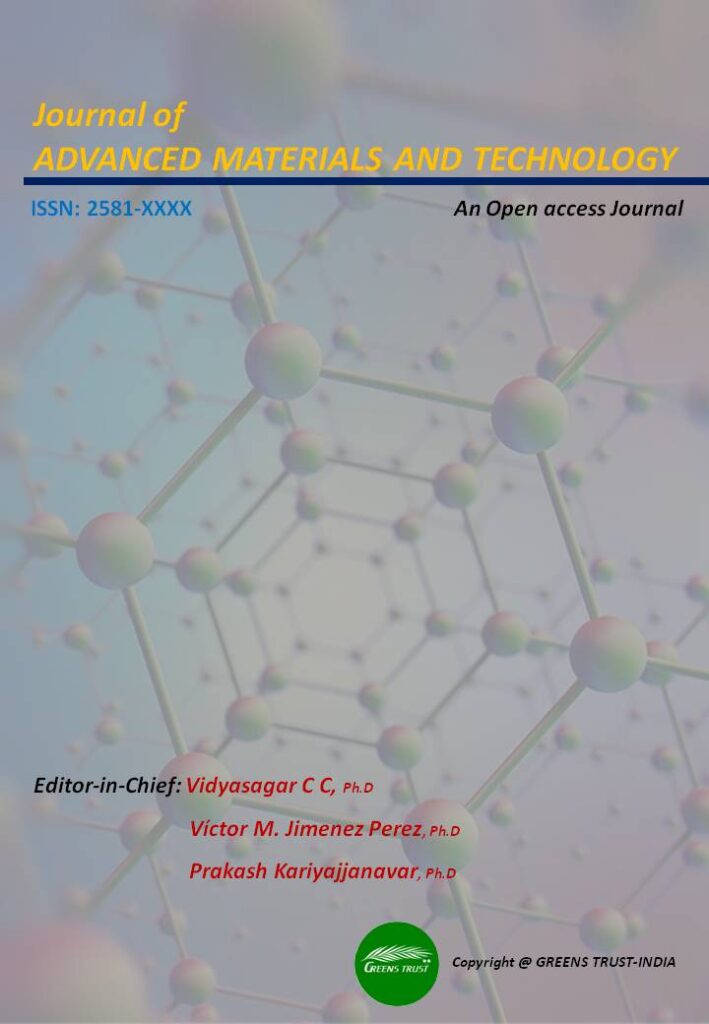

JOURNAL OF ADVANCED MATERIALS AND TECHNOLOGY (JAMT)
ISSN: XXXX-XXXX (applied)
Editor-in-Chief:
- Vidyasagar CC, Ph.D
- Victor M. Jimenez Perez, Ph.D
- Prakash Kariyajjanavar, Ph.D
Duration of First Decision: 2 weeks
Journal of Advanced Materials and Technology (JAMT) is a peer reviewed multi-disciplinary journal focused on all the aspects of advanced materials. The Journal of Advanced Materials and Technology (J. Adv. Mater. Tech.) is an open access International journal, was established in 2020 for the publication of national and international research papers in all fields of natural sciences and technology. From the design and assembly of advanced structured materials, functionalization and properties to the imaging of technology, the journal aims to capture the latest advances and breakthroughs in material science. Advanced Materials is one of the fastest developing areas of science, covering the application of Chemistry & Physics-based techniques to the study of materials; including materials synthesis, behaviour and the relationships between material structure and properties at the atomic and molecular scale.
AIM of JAMT: ADVANCED MATERIALS are revolutionizing the way companies do business and demanding that R&D and engineering teams keep up. At any given time, a company or its competitors may launch a new material or application that unlocks revenue potential and market share, meets unmet customer needs, achieves profitability goals or satisfies sustainability and regulatory requirements. Differentiation can be achieved from the molecular level and up-as new materials utilize the research community’s understanding of chemical compound structures and other properties, and can be used to improve product performance, capability and efficiency of production processes.
SCOPE of JAMT: The journal is an international, open access journal publishing peer-reviewed original research papers, communications and reviews dealing with synthesis, processing, characterization, demonstration, modelling, simulation and applications of advanced functional materials and devices, such as:
Nano-composite materials, Ferroelectric materials, Magnetic materials, Optical materials, Semiconductors, · Superconductors, Colloidal Materials, Photocatalysis, Electrochemistry, Energy Storage and Conversion Devices, Organic electronics, Drug delivery, Sensors and biosensors, Biochemistry, Polymer and Interdisciplinary Physics, Water and Environmental sustainability.


